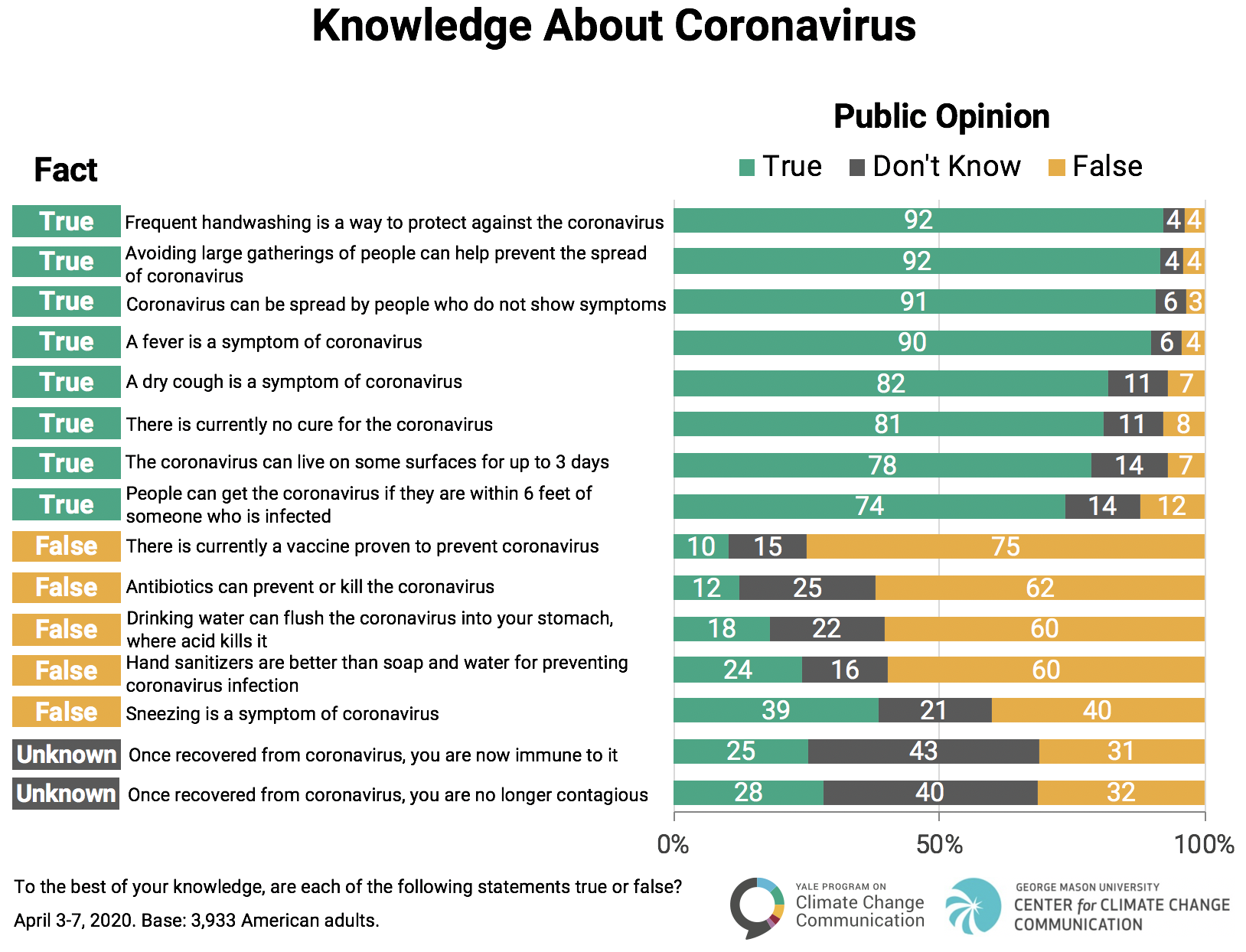Report · Apr 17, 2020
American Public Responses to COVID-19 – April 2020
By Matthew Ballew, Parrish Bergquist, Matthew Goldberg, Abel Gustafson, John Kotcher, Jennifer Marlon, Seth Rosenthal, Edward Maibach and Anthony Leiserowitz
Filed under: Messaging
3. Knowledge
3.1. Knowledge about coronavirus.
Many Americans correctly understand some key facts about COVID-19 (see Appendix I for the list of facts and sources). Americans indicated whether they thought 15 statements were true or false or that they don’t know. Among the true statements, nine in ten Americans understand that frequent handwashing is a way to protect against the coronavirus (92%), avoiding large gatherings of people can help prevent the spread of the coronavirus (92%), and that the coronavirus can be spread by people who do not show symptoms (91%).
Nine in ten (90%) Americans understand that fever is a symptom of coronavirus infection, and eight in ten (82%) understand that a dry cough is a symptom. Three in four or more Americans understand that there is currently no cure for the coronavirus (81%), the coronavirus can live on some surfaces for up to 3 days (78%), and that people can get the coronavirus if they are within 6 feet of someone who is infected (74%).
There were also several false statements included in the list. Three in four Americans (75%) understand there is currently no vaccine to prevent the coronavirus. Six in ten Americans understand that antibiotics cannot prevent or kill the coronavirus (62%), drinking water cannot kill the coronavirus by flushing the virus into the stomach where acid kills it (60%), or that hand sanitizer is not better than soap and water for preventing coronavirus infection (60%). Fewer (40%) understand that sneezing is not a symptom of coronavirus infection.
Currently, there is not conclusive evidence about whether people who recover from the coronavirus are no longer contagious or are immune to future infection.https://www.cdc.gov/coronavirus/2019-ncov/faq.html#anchor_1584386553767,https://www.weforum.org/agenda/2020/03/coronavirus-recovery-what-happens-after-covid19/,https://www.npr.org/sections/goatsandsoda/2020/03/20/819038431/do-you-get-immunity-after-recovering-from-a-case-of-coronavirus Four in ten or more Americans say they “don’t know” to two statements about people who have recovered from the coronavirus – that “you are now immune to it” (43%) and “you are no longer contagious” (40%).
